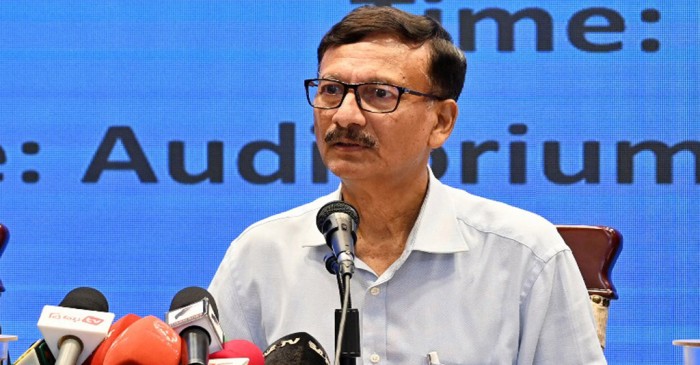

Foreign adviser to the interim government, Md Touhid Hossain, said on Saturday that Dhaka would like to maintain working relations with New Delhi on the basis of mutual respect by removing ongoing tension between the two neighbours.
Admitting the current strain in the India-Bangladesh relations, he said that it was necessary to admit problem if there was any to resolve that.
‘We must recognise that there is a kind of tension in our relations with India at the moment. We can resolve the problem and maintain working relations with them on the basis of mutual respect,’ Touhid, also a retired diplomat, told a press briefing on Bangladesh’s participation in the 79th United Nations General Assembly at the foreign ministry.
He expressed his belief that it was possible to advance bilateral relations between India and Bangladesh on the basis of mutual respect and fairness.
Responding to another question, he said that there was no possibility of any meeting between chief adviser to the interim government, Professor Muhammad Yunus, and Indian prime minister Narendra Modi on the sidelines of the UNGA, saying that ‘Modi is scheduled to leave New York before Professor Yunus is to reach there’.
The foreign adviser, however, said that he would have a bilateral meeting with his Indian counterpart S Jaishankar on the sidelines of the UNGA.
He said that the chief adviser was expected to join bilateral talks with the prime minister of Pakistan, the prime minister of the Netherlands and the prime minister of Nepal.
He would also join a meeting with the United States secretary of state Antony Blinken on the sidelines.
Touhid said that Professor Yunus would leave Dhaka for New York on September 23 by a commercial flight with a 57-member delegation unlike previous years with more than 100 delegates by chartered flights.
Concluding his three-day trip, the chief adviser would leave for Bangladesh on September 27, he added.
This would be the first foreign trip of Professor Yunus after he took over as the chief adviser to the interim government on August 8 following the fall of autocratic regime of Sheikh Hasina, who fled to India amid a student-led mass uprising on August 5.
Asked whether the government was taking any move to bring back Hasina, now facing dozens of cases on charges of murders and committing crimes against humanity, Touhid iterated that they would follow a judicial process in this regard.
Asked about Bangladesh’s focus in the UNGA, he said that the chief adviser was expected to present an account of the student-led mass uprising in Bangladesh behind the political changeover leading to the formation of the interim government and his reform agenda in various sectors to the international communities.


